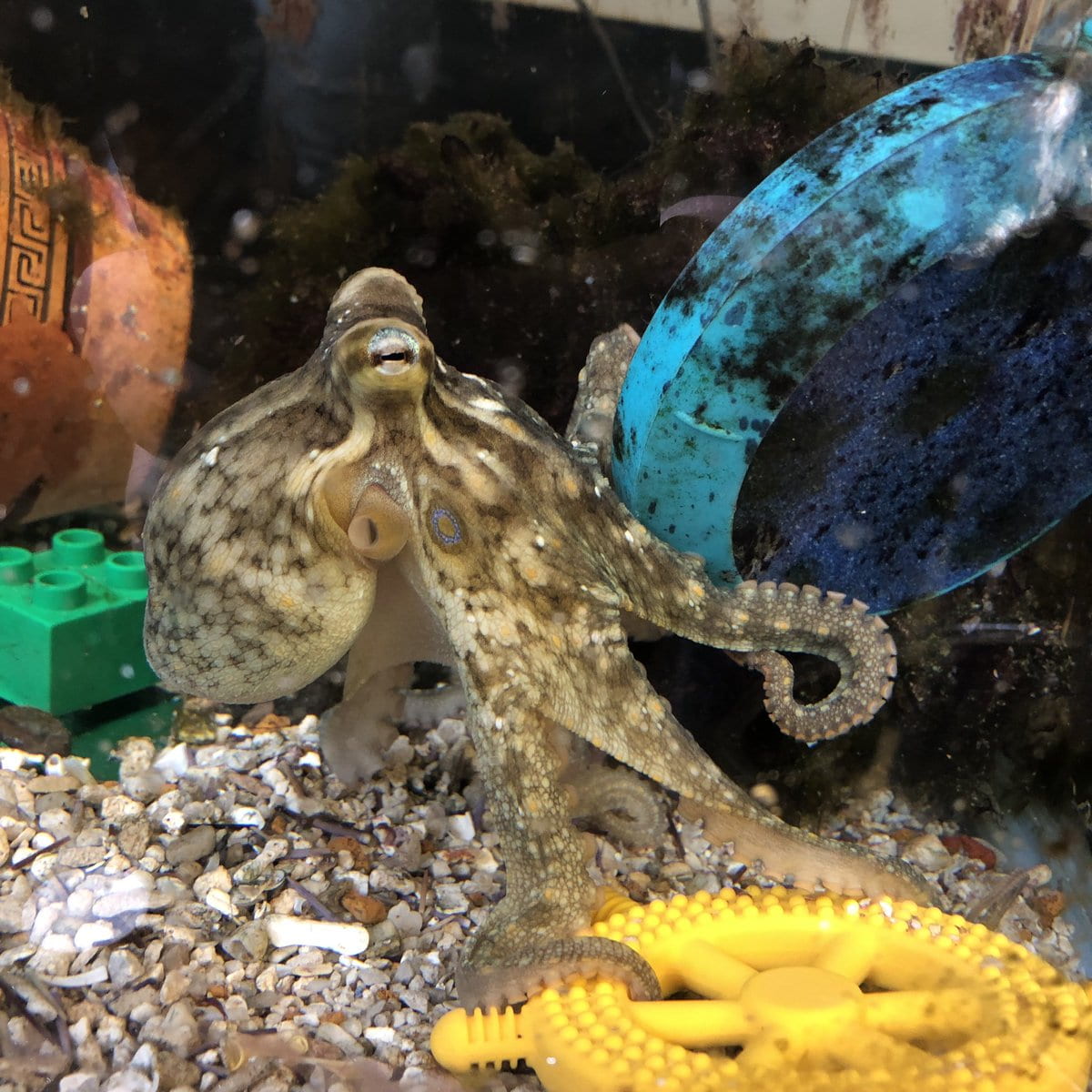Cephalopods
The octopus is rich in evolutionary novelties, from an immense nervous system to prehensile arms to a tremendously sophisticated adaptive coloration system. The octopus’s brain and its complex behavior has attracted the greatest study, but much of this research was done in the 20th century and limited by the techniques of the time. The major focus of the Ragsdale laboratory is to bring the modern advances in neuroscience, molecular cell biology and genetic manipulation to the study of cephalopod biology. Our first major step was into genomics and transcriptomics of the California Two Spot Octopus (Octopus bimaculoides), as published in Nature in 2015. Current research includes motor control of the octopus arm, octopus arm regeneration, the organization of the cephalopod nervous system, comparative cephalopod genomics, and the neuroendocrinology of octopus sex and death.

